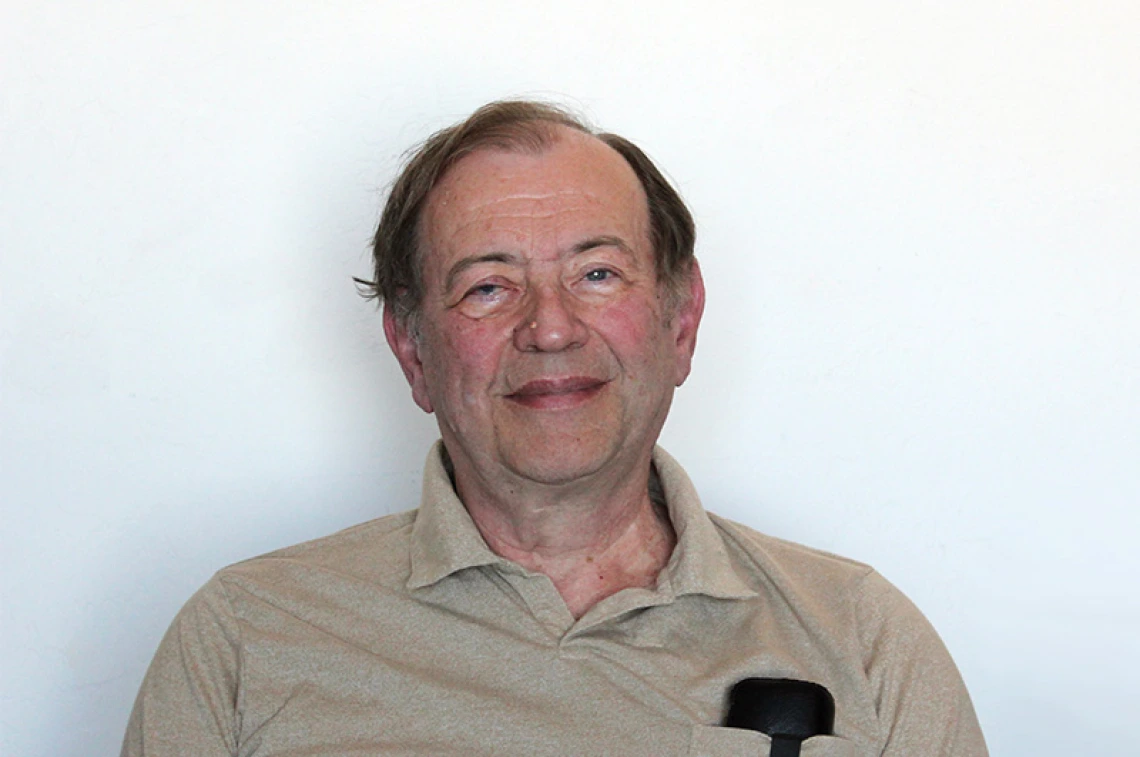One-on-One With Mentor Dave Gilblom

Dave Gilblom earned a bachelor’s degree in engineering and applied physics from Case Western Reserve University in 1968, and an MBA in marketing from Santa Clara University in 1979.
Over the course of his career, he’s held roles such as general manager for imaging products at Varian Medical Systems and product manager at PerkinElmer. He is currently the CEO of Maxwell-Hiqe Corp., a global distributor of image sensors, and the president of Alternative Vision Corp., which distributes optics and imaging products.
This is Gilblom’s 10th year as a capstone mentor. He started mentoring teams in 2006, took a brief hiatus during which he sponsored two projects, and returned in 2014.
What inspired you to become a mentor in the first place?
I enjoy managing programs and teams and like working with the students. I had applied for a job teaching ENGR 102 – which I also did for four years – and I was asked by the teaching team at the time to consider mentoring Interdisciplinary Capstone as well.
How does being on a mentored design team help students in the professional world?
These teams give the students an extended reality check. They learn what is expected of them not only professionally, but also interpersonally. They improve their speaking and presentation skills and learn the rudiments of program management. I have often heard feedback from sponsors about the value of the practical aspects of engineering project execution that Interdisciplinary Capstone provides.
What’s your favorite team or project you have mentored, and why?
My all-time favorite was a team that was given a task that the sponsor was sure would not be completed. They not only succeeded, but provided a complete analysis of the needed work and their results and provided a real-time demonstration of the equipment. The sponsor had to scramble to acquire control of the intellectual property.
Describe an aha! moment you experienced while mentoring a design team.
This happens all the time when I realize that even seniors know a lot more about some things than I do. This is a constant reminder of the speed at which technology changes. The students benefit from the things I know about where designs come from and how projects get completed. Many of them are surprised to find out that technical knowledge is not enough.
What advice would you offer to others considering mentoring a design team?
Make sure the teams are exposed to all of the course material and be able to explain details. Don’t do their work for them – your job is to manage the process. Relate your experiences that are relevant to their tasks. Step in when you see team relationship trouble. Help them find help when they need it. Manage the sponsors and the project scope. Don’t let things get off track. Be honest with the teams always and give honest grades.
How do employers benefit when they hire students who have been on a mentored senior design team?
When I was a freshman in engineering school, my first circuits teacher told the class that the main benefit of engineering school is that, when we get jobs, we would be able to understand what our employers are telling us. The Interdisciplinary Capstone experience broadens the list of things that the students will be able to understand beyond purely technical material.
Tell us something about yourself that people might be surprised to learn.
The students love this one. I once wore a wire to a meeting set up by my boss, who wanted to figure out how to circumvent a patent – which had my name on it – owned by the company we worked for. The whole meeting was recorded, and he later got fired. Then, I got a bonus and a promotion. I tell the whole story every year after the ethics lecture.
What else would you like us to know?
Retirement is a boring idea (I’m 73) so I still run two companies and mentor Interdisciplinary Capstone teams. I’ll keep doing both of these things until I am unable to continue. Then, I’ll probably sit in a chair and watch ’60s and ’70s TV show DVDs and listen to classical music. Incidentally, there are a lot of excellent, free music faculty concerts at the university’s Fred Fox School of Music.

